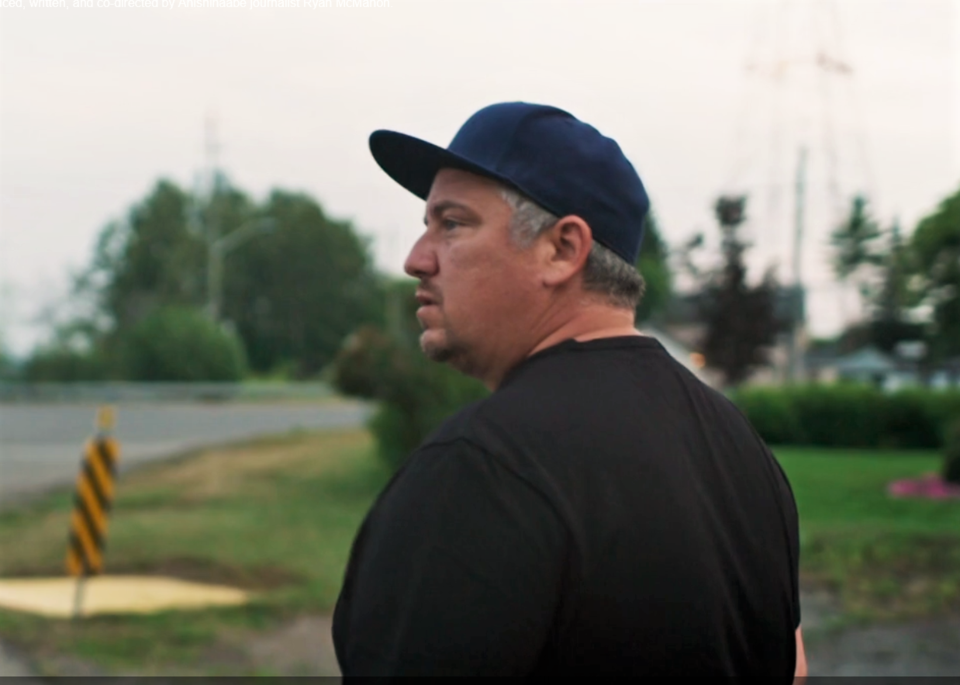THUNDER BAY — The creator of the new documentary series putting a critical eye on issues of racism and policing in the city says he hopes it will amplify calls for change.
The show — titled Thunder Bay — builds on a Canadaland podcast series of the same name, which explored the deaths of Indigenous youth in the city, and the response of a municipal government and police force beset by scandal.
Ryan McMahon, an Anishinaabe writer and comedian, returns to host the four-part series and also co-wrote, directed and produced.
The first two episodes will be available Friday on Crave, the streaming service owned by Bell Media, with the final two dropping on Feb. 24.
A dramatic trailer has already made waves on social media, drawing condemnation from Thunder Bay Police Service leadership.
McMahon, whose home community is Couchiching First Nation, has what he called a lifelong connection with the city.
“Growing up in Fort Frances, Thunder Bay was the big city for me,” he said. “Anytime we needed school clothes or anything like that, we’d go into the city. I had many family members [here and] I played hockey in the city.”
“I guess I’d say my heart never left … I always had one eye on Thunder Bay because of what was happening there. Certainly after the inquest into the seven youth deaths and all of the attention it garnered, I couldn’t look away anymore.”
The podcast came out in 2018, two years after the inquest concluded, becoming “a bit of a hit” with millions of downloads globally.
The show delves further into what McMahon calls a "stark divide" between white and Indigenous people in the city, botched investigations into Indigenous deaths, and a “civil war” within the police service.
“While the national media left in 2018, and people stopped paying attention to the Thunder Bay story, things continued to happen there that were troubling and just didn’t add up for me,” he said.
The series features the voices of Indigenous people whose relatives died in the city, advocates, lawyers, and police officers.
Getting leaders on record proved more difficult, he said.
“Nobody wanted to talk to me. That’s fair — you don’t have to talk to a journalist or a documentarian when they come knock on your door. But given the climate in Thunder Bay ... and what had gone on, I think it was really important for the city to answer these questions.”
“If change was coming, if you're proud of the things you are doing, why wouldn’t you come and sit in the chair and talk to me?” he asked. “They didn’t, and that, I think, speaks volume.”
Police leadership urged officers not to watch the series in emails published by journalist Jon Thompson, who also worked on the show
McMahon said he's received some more disturbing responses to his work.
“I’ve been sent death threats from inside the city of Thunder Bay. I’m told not to come back, I’m told there are people in the airport that know my face and will send the message across the city that I’m there.”
Still, he said he’s heard more positive feedback from local residents, and called Thunder Bay a “fantastic city” despite its issues.
“I’ve always said this — I’m fighting for this city just the same as anyone else,” he said. “Citizens inside the city itself are desperate for change. I hear this time and time and again. For whatever reason, those in power are resistant to change.”
“Canada writ large is a failed colonial project, and this is what it looks like inside of towns and cities across Canada. Yes, Thunder Bay was the focus of the podcast series, but if I have any empathy or compassion or sympathy for the city and its leadership, it’s that stories like this take place all over the place.”
On the other hand, he said, “these stories and the way Indigenous people die in this city are very particular.”
